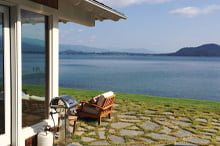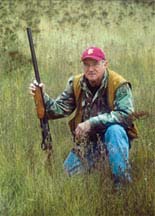No products in the cart.
Just Visiting

Is Eco-Tourism Even a Thing?
By Ron McFarland
Last July, my wife Georgia and I drove up from Moscow to Sandpoint for a reading by two authors whose new books concern tragedies at sea. One is by Sarah Conover, Set Adrift: a Mystery and a Memoir (55 Fathoms Publishing, 2023). Sarah, who has a Master’s degree in creative writing and has worked as a PBS producer, was two years old when her family’s sailboat disappeared in the Bermuda Triangle, leaving her orphaned.
The other book, by our longtime friend Paul Lindholdt, is Interrogating Travel: Guidance from a Reluctant Tourist (LSU Press, 2023). Paul’s twenty-year-old son and his pal disappeared in a kayaking accident in the Salish Sea, an event mentioned in his 2011 memoir, In Earshot of Water, and to which he returns in Interrogating Travel.
On our visit, Georgia and I spent three days with Paul at the luxurious condo in Sandpoint that he and wife Karen own. Karen was unable to join us, as she found herself in the clutches of the lawyering biz. Paul, who studied with Annie Dillard while getting his Master’s in creative writing, later earned a PhD and has done stints as a professor at Idaho State University and the University of Idaho.
In addition to his two memoirs, his books include the poems in Making Landfall (2018), and the nonfiction Explorations in Ecocriticism: Advocacy, Bioregionalism, and Visual Design (2015).
Both Sarah’s and Paul’s new books can be regarded as memoirs, although Paul blends in thesis-driven argument, which I think qualifies it as “eco-memoir.” He confronts the contradictions implicit in his identity as an environmental spokesman and literary eco-critic with his personal involvement in high-end, CO2-producing air travels.
This content is available for purchase. Please select from available options.
Purchase Only
Purchase Only

